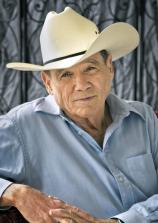Excerpt
Excerpt
Another Kind of Eden

Prologue
THE EVENTS I’M about to describe may challenge credulity. I do not blame the reader. Young Goodman Brown wanders these pages. The macabre images, the Gothic characters, the perfume from a poisonous garden could have been created with the ink from Nathaniel Hawthorne’s pen.
But the operative word is “could.” Edwin Arlington Robinson once wrote that God slays Himself with every leaf that flies. I think the same is true of us. I think we cannot understand ourselves until we understand that living is a form of dying. My generation was born during the Great Depression and, for good or bad, will probably be the last generation to remember traditional America. Our deaths may be inconsequential; the fling we had was not.
Cursed or blessed with the two faces of Janus, we saw the past and the future simultaneously but were sojourners in both, and most of us had gone into the night even before we knew the sun had set. In our ephemerality, we were both vain and innocent, as children can be vain and innocent. In our confidence that the evil of German fascism and Japanese imperialism lay smoldering in the ashes of Berlin and Hiroshima, we believed the republic of Jefferson and Adams had become the model for the rest of humankind, without acknowledging the internecine nature of triumphalism.
Music was everywhere. Dixieland, Brubeck, R&B, swing, C&W, rock and roll, Bird. The amusement piers along the Gulf Coast rang with it. In the hurricane season, when the nights were as black as silk, the waves seemed to swallow the stars and turn the waves to burgundy. They were five feet high, hissing with foam, swollen with seaweed and shellfish, with the thudding density of lead, smelling of birth and organic turmoil and destruction; then, suddenly, they would lift you into the air, pinioning your arms behind you like Jesus on his cross, and release you on the sand as a mother would a child.
It was a grand time to be around. War was an aberration. Bergen-Belsen and Changi Prison were devised by foreign lunatics who wore the uniforms of clowns. A GI with a cigarette lighter that had a sketch on the side of Mount Fuji was a celebrity. But the fondest memories were the drive-in theaters, the formal dances under a silver ball, the summer tuxes and hooped crinoline dresses, the dollar-fifty corsages and small boxes of chocolate-covered cherries we gave to our dates at their front door, the flush in a girl’s face when you kissed her cheek, the shared conviction that spring was forever and none of us would ever die.
But illusion is illusion, and the millions of bison and passenger pigeons slaughtered on the plains and the whalebones that still wash ashore on the New England coast are testimony to our anthropogenic relationship with the earth. And for that reason I have written this account of the events to which I was witness in the year 1962, in the days just before the Cuban Missile Crisis.
These events fill me with sorrow and give me no peace. They also make me question my sanity. But they occurred, and others can reckon with them or not. I said Goodman Brown found his way into this story. That’s not quite accurate. I believe the human story is collective, that we write it together, but only a few are willing to recognize their participation in it. T. E. Lawrence described the aftermath of the Turks at work in an Arabian village. I have never forgotten the images, and I have never forgiven him for implanting them in my memory. At the conclusion of this story, I hope I have not done that to you.
Another Kind of Eden
- Genres: Fiction, Historical Fiction, Historical Thriller, Suspense, Thriller
- paperback: 256 pages
- Publisher: Simon & Schuster
- ISBN-10: 1982151722
- ISBN-13: 9781982151720



